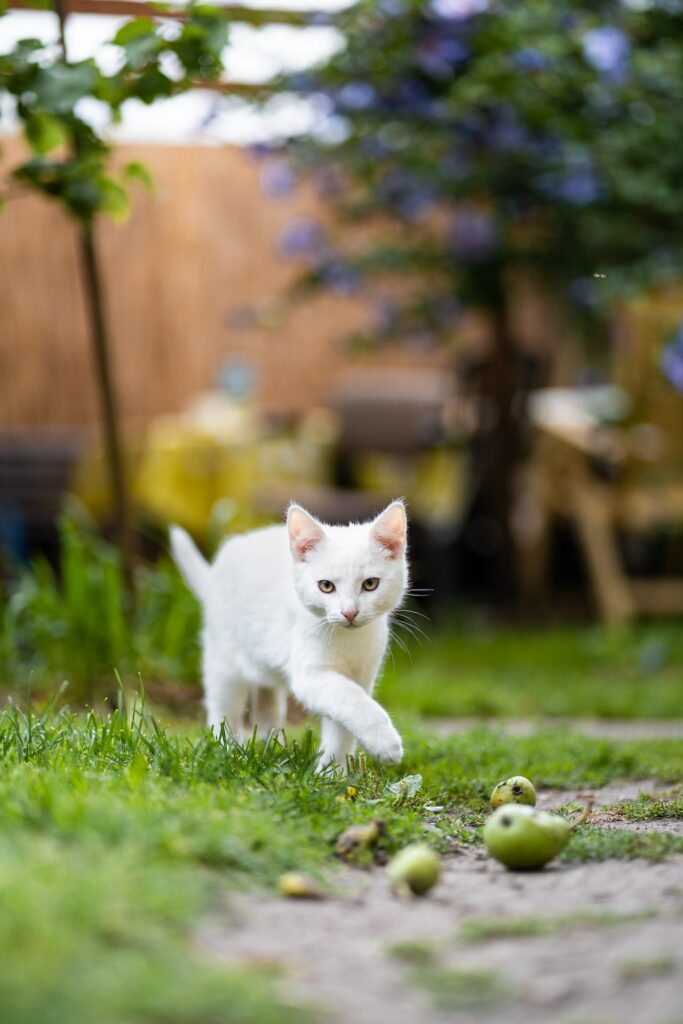Exploring the Running Abilities of Cats: What You Need to Know
Do cats love to run? Can cats be encouraged to exercise through running? Are cats even capable of running at all? This article is for you if you’ve ever asked yourself any of these questions. Here we will explore the physical abilities of cats when it comes to running and how cats may naturally benefit from this form of exercise. We’ll also discuss the differences between cats and other animals in terms of their running capabilities and tips on encouraging cats to run. Finally, we’ll examine the many benefits of cats getting regular exercise through running. So read on if you want to know more about your feline friend’s potential for a great cardio workout!
What Makes Cats Such Good Runners?
Cats have several physical qualities that make them good runners. A cat’s body is built for speed. They possess flexible spines that can adjust to terrain and give them a powerful leap when running; large hind legs which provide them with considerable momentum when sprinting; long tails which act as a rudder while the cat is in motion; and strong claws which grip onto any surface they traverse, preventing slips and falls throughout their journey.
In addition to these physical traits, cats also have unique mental abilities that enhance their running prowess. Most notable among these is a heightened sense of awareness that gives cats superior vision and reflexes compared to other animals. Which plays a huge role in determining a cat’s success during a run. Furthermore, cats are quite adaptable creatures; their ability to learn quickly from experience allows them to modify their running strategy if necessary based on varying environmental conditions or the presence of potential predators. All these factors come together to make cats some of the best runners among all four-legged animals.
Types of Running for Cats
Sprints
Sprinting is probably what most people associate with cats when they think about running. When an animal “sprints”, it means they are running as fast as possible for a short period of time over short distances (usually less than 400 meters). This type of running requires intense bursts of energy and speed. It is ideal for activities such as hunting or chasing down prey while avoiding any possible threats or obstacles. Cats are especially well suited for this type of activity due to their impressive strength and agility, quick reflexes, and sharp vision. All essential components for successful sprinting performance in any species!
Marathons
Although not as prevalent as sprinting in the feline world, marathon running (or long-distance endurance running) can still occur amongst certain breeds or individuals depending on various environmental factors, including food availability, climate etc. Marathon bouts usually involve distances between 5 km up to 50 km (or longer), depending on the individual’s capacity for endurance. However, these feats require tremendous amounts of energy expenditure, thus making it more difficult for cats who may not have access to adequate food sources or those who do not possess an innate ‘runners’ physique’ like those in wilder populations might suffer during lengthy runs such as these marathons can be very taxing on even the fittest wildcat so caution should always be taken when attempting any sort of long-distance run with domesticated felines.
Advantages & Disadvantages:
Advantages
- Felines naturally possess strong limbs & claws, allowing them to take quick strides & dig into surfaces if need be
- High-level reflexes coupled with heightened sensory perception enable faster reaction times & better navigation through unpredictable terrain.
- Adaptability & learning ability allows felines to quickly adjust their strategies if needed
- Flexible spine & tail assist in maintaining balance & controlling the direction.
Disadvantages
- Wildcats tend to tire easily after extended periods of exercise due to limited nutrition sources.
- Due to lifestyle changes, domesticated felines may lack certain qualities, such as reduced muscle mass or weaker bones.
- Less experienced felines may struggle to adapt quickly enough during runs due to inexperience or fearfulness.
- High-risk factors associated with certain types of runs, such as prolonged marathons where an injury is more likely
Conclusion
Considering all available evidence, one can assume that cats may not be popularly thought of as “runners”. They certainly possess specialised physiology that makes them adept at sprinting over short distances while also having the capacity for enduring marathon-type activities when required under suitable circumstances! It is clear that although there are inherent advantages & drawbacks associated with feline athleticism, some breeds/individuals benefit from being able to undertake higher-intensity activities like sprinting & marathoning! Therefore we can conclude that although not always considered ‘great runners’ by human standards. Domestic felines have earned themselves rightful recognition amongst other four-legged athletes!
Don’t forget to keep your beloved cats safe and sound by getting them insured with furrr.co.uk! With an extensive range of pet insurance plans, you can have peace of mind knowing that your cats are covered in the event of an emergency or illness. Offering affordable coverage for cats of all sizes, ages, and health histories. Furrr is the perfect place to start when looking for quality and protection for your furry friends. Get your cats running with confidence today by visiting furrr.co.uk – because nothing should stop them from living their best lives!










